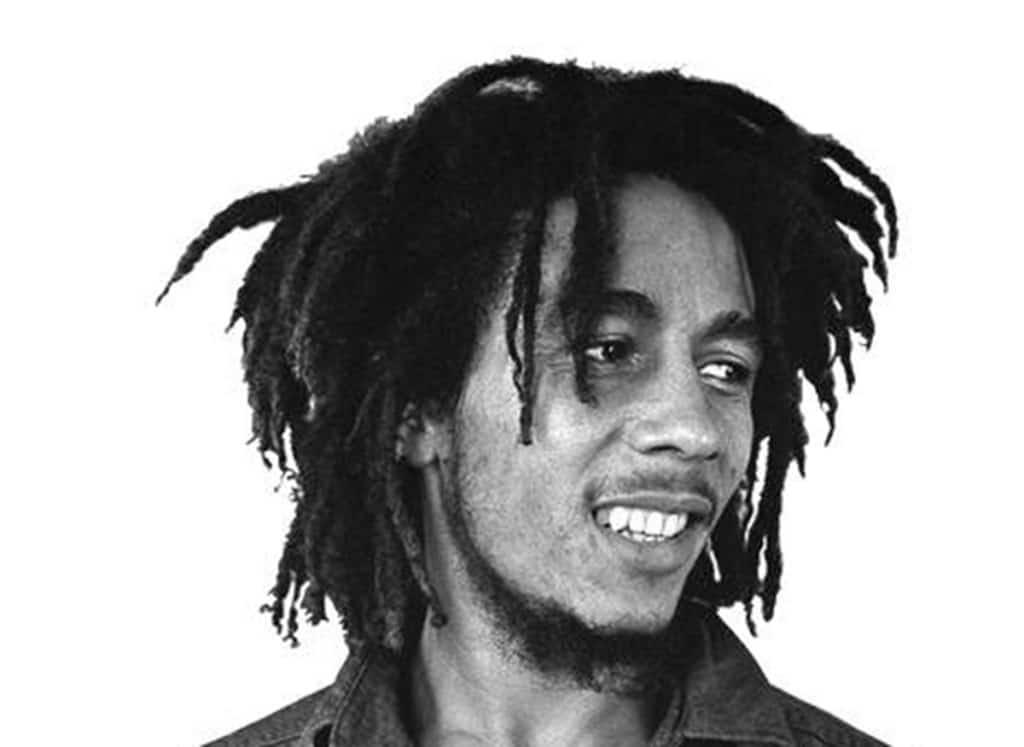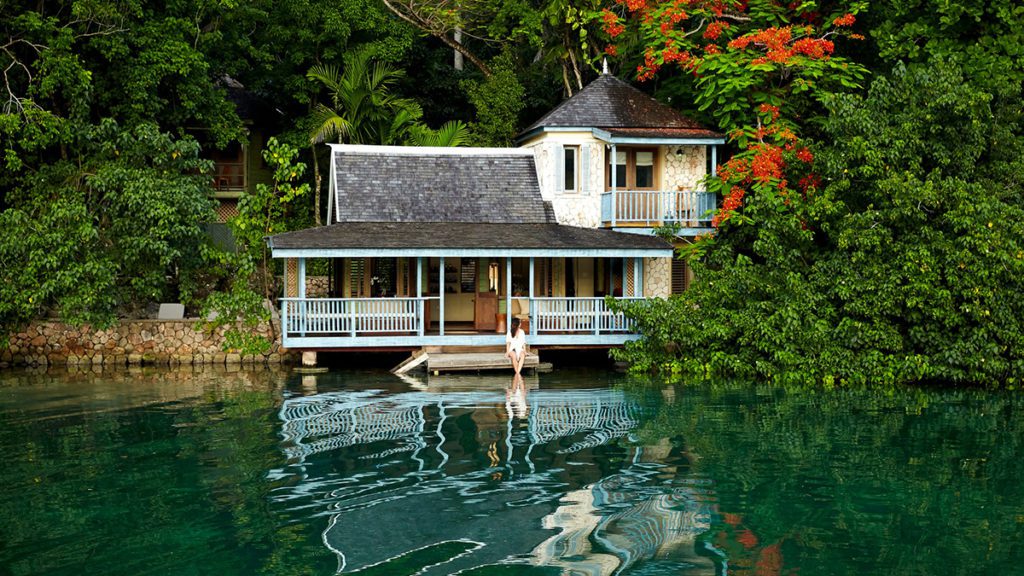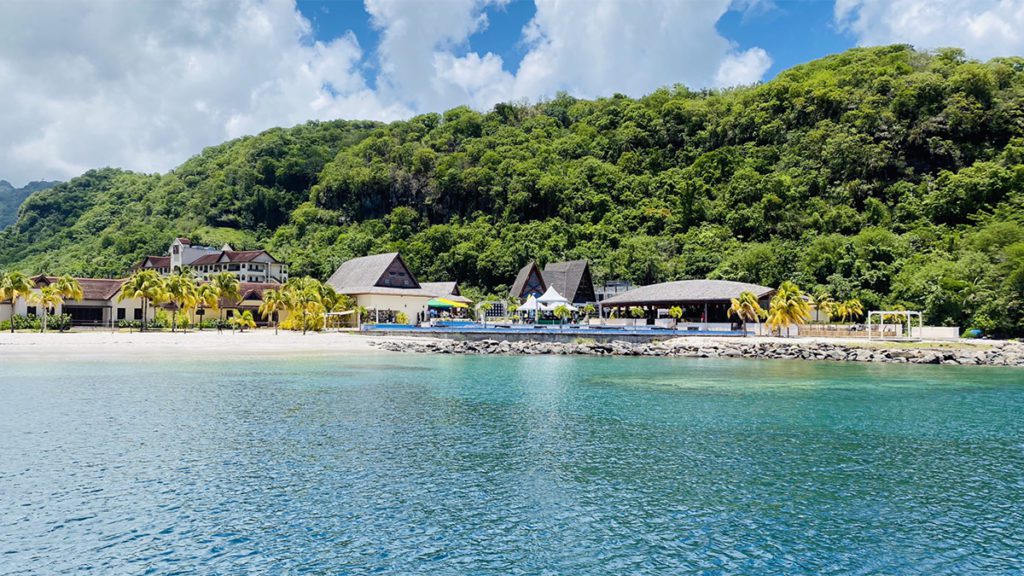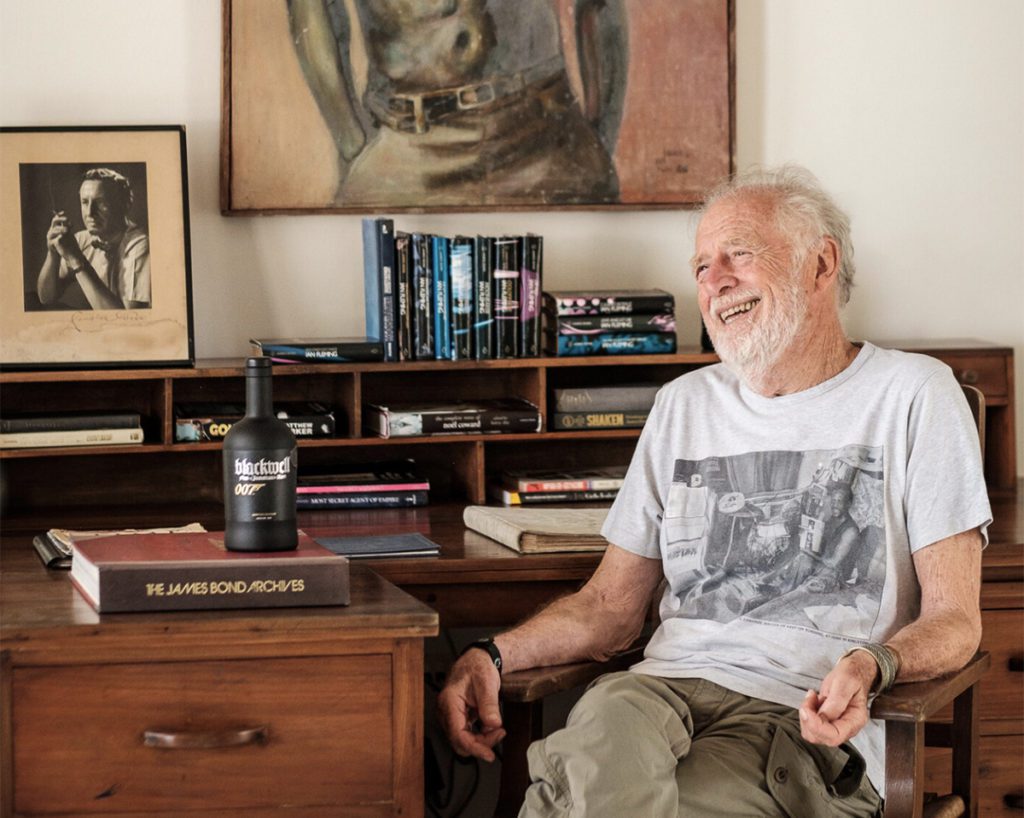If a fortune teller had stirred her tea leaves left instead of right one day in 1962, the world outside of Jamaica might never have heard of ska, reggae, or Bob Marley.
That’s how close legendary record producer and Island Records founder Chris Blackwell came to choosing to chase stardom in Hollywood rather than following has passion for music into a career that would lead the Rock and Roll Hall of Fame to declare him “the single person most responsible for turning the world on to reggae music.”
“I worked as a ‘gopher’ on the first Bond movie (Dr. No, which was filmed in Jamaica), and it was a great experience,” said Blackwell, interviewed from his Oracabessa, Jamaica home, which also is the location of Blackwell’s Goldeneye resort. “I had mixed feelings about whether I should stay in the music business or go into the movies. So I went to a fortune teller. The woman had a cup of tea, and we were looking into the cup and she said, ‘I think you should keep doing what you are doing.’”
Blackwell — a lifelong music fan born in England but raised in Jamaica — had already started dabbling in music production by his early 20s. Having bounced between jobs working for a local politician, renting motor scooters, and teaching tourists how to water-ski, Blackwell was working at the Half Moon hotel in Montego Bay when he heard a visiting band from Bermuda perform.

“I told them I thought they were good and said, ‘I’d like to record you guys.’ It just came out of my mouth — I didn’t know a thing about recording,” said Blackwell. “I rented a van and we drove into Kingston to a recording studio. They played the first tune and all looked at me and said, ‘Would you like us to do another take?’ I said yes, and that’s how it started. I knew at that moment that this was what I wanted to do for the rest of my life.”
By the early Sixties, Blackwell was representing several Jamaican acts and, returning to England for a time, selling records out of his car to members of the local Jamaican expat community.
His first big breakthrough was when Millie Small’s cover of “My Boy Lollypop,” one of the earliest ska records, sold six million copies worldwide.
Building on that success, Blackwell would go on to discover The Spencer Davis Group and Steve Winwood, with Island Records eventually signing acts as diverse as Traffic, Cat Stevens, Roxy Music, Grace Jones, U2, and Nirvana.
Many of these artists recorded at Blackwell’s Compass Point Studios in Nassau, Bahamas, which for a time was the hottest recording studio on the planet.
“I’m a music fan,” said Blackwell. “It started with classical music — my father loved classical music and used to play Wagner deafeningly loud.”
One thing that never quite on with the legendary producer was learning how to play an instrument himself.
“I can’t play nothing, but I love it,” he said.
In the late Sixties, Blackwell was instrumental in the formation of Toots and the Maytals — the band that coined the term “reggae” — signed Bob Marley and the Wailers to a record deal that resulted in the seminal albums Burnin’ and Catch A Fire, and produced the film most widely credited with bringing reggae to a global audience, Jimmy Cliff’s The Harder They Come.
Blackwell even gifted his Kingston home to Marley, where the reggae icon rehearsed and was nearly assassinated in 1976; today, the house at 56 Hope Road is enshrined as the Bob Marley Museum, one of Jamaica’s biggest tourist attractions.
As Blackwell’s career in music wound down in the late 1990s, he turned more of his attention to Island Outpost, his Jamaican hotel company whose properties include Goldeneye, The Fleming Villa, The Caves, and Strawberry Hill. In 2009, he released Blackwell Rum, a nod to his love of Jamaican culture as well as his personal lineage: his mother, Blanche Lindo Blackwell, came from the family that once owned the Jamaican spirits company J. Wray & Nephew Ltd. and the Appleton Estate distillery.

Prodded by a friend to make his own rum, Blackwell reached out to J. Wray & Nephew master distiller Joy Spence to develop several unique blends as samples.
“I’m not a big drinker, but thought it was not a bad idea as long as it was made in Jamaica,” said Blackwell. “I came down to the bar at Goldeneye and said to the four girls sitting there, ‘Come and taste my rum.’ I poured the one I wanted and all four of them picked a different one, so I decided to follow their direction.”
In 2020, to mark the release of the 28th James Bond film (which has now been pushed due to the pandemic to 2021), No Time to Die, Blackwell 007 Rum was unveiled — the latest in a long series of associations between Blackwell and the James Bond film franchise. Blackwell had a brief cameo in Dr. No, while his mother was romantically involved with James Bond author Ian Fleming (and possibly the inspiration for the character Pussy Galore). Blackwell also has owned Goldeneye, Fleming’s former home and where the author wrote all 13 of his James Bond books, for decades.
Blackwell worked closely with the Jamaican government to ensure that No Time to Die could win approval to film on the island.
“Barbara Broccoli (daughter of the original James Bond producer Albert “Cubby” Broccoli and the producer of all of the Pierce Brosnan and Daniel Craig 007 films) was a little girl when they were filming Dr. No,” recalled Blackwell. “She felt like they had to come back 50 years later — it’s amazing that Jamaica had that pull on her.”
Blackwell welcomes visitors to come stay at his hotels, but also touts Jamaica’s rich diversity.
“Go into the countryside, drive around and just experience Jamaica and communicate with the people, who are very friendly and entertaining — they are characters,” he advised, noting that Jamaica’s melting pot of African, English, Chinese, and Indian people contributes greatly to its music as well as its food and culture.
“When you drive around Jamaica you could be going to another country,” from the beaches along the coast to the rugged interior. “Go up into the Blue Mountains and but some fresh coffee beans,” he advised. “Swim in the fresh, cold water of a spring-fed river as it meets the sea at Frenchman’s Cove in Port Antonio.”
Visit Oracabessa, too, he recommended; the port town near Ocho Rios once thrived by shipping bananas to England, and is now a quiet community that’s home to both Goldeneye and the Firefly Estate, the former home of writer Sir Noel Coward.
And of course Blackwell encourages visitors to seek out live music while they are in Jamaica, although he laments the fact that hotels only infrequently book local reggae bands to play for guests, often preferring calypso or top-40 acts as poolside entertainment.
“Any opportunity I have to promote Jamaica, I love it,” Blackwell said. “It is my home, where I grew up.”
For all of the time Blackwell has spent traveling in his 83 years, Jamaican always calls him back. “Jamaica is more loose, and less stressed — it has more of a sense of free spirit,” he said.
And while Blackwell has done more than almost anyone to introduce Jamaica’s unique music to the world, at heart he remains the awe-filled fan he was more than a half-century ago.
“It’s hard to figure out why that music managed to reach so many people,” he said. “I don’t know any other national music that has done that. Jamaica has been extraordinary with music over the past 60-odd years, and that music has reached all over the world.”
St Vincent and the Grenadines Has a New Tourism Minister

